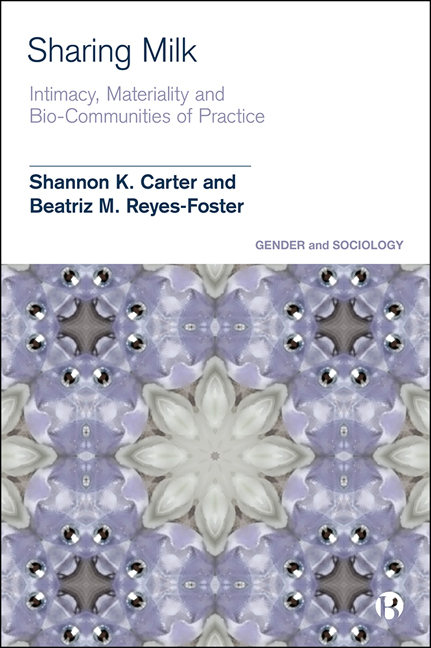Book contents
- Frontmatter
- Dedication
- Contents
- List of Figures and Tables
- Notes on the Authors
- Acknowledgements
- Preface
- 1 Introduction: Sharing Milk
- 2 Theorizing Milk Sharing
- 3 Entering Bio-Communities of Practice
- 4 Milk-Sharing Practices
- 5 The Milk-Sharing Network
- 6 Conclusion
- Notes
- Appendix A Survey Participant Demographics
- Appendix B Interview Participant Demographics
- References
- Index
Appendix B - Interview Participant Demographics
Published online by Cambridge University Press: 10 March 2021
- Frontmatter
- Dedication
- Contents
- List of Figures and Tables
- Notes on the Authors
- Acknowledgements
- Preface
- 1 Introduction: Sharing Milk
- 2 Theorizing Milk Sharing
- 3 Entering Bio-Communities of Practice
- 4 Milk-Sharing Practices
- 5 The Milk-Sharing Network
- 6 Conclusion
- Notes
- Appendix A Survey Participant Demographics
- Appendix B Interview Participant Demographics
- References
- Index
Summary
Table A.2 displays the demographic characteristics of interview participants. Participants consisted of 30 individuals who resided in Central Florida and took part in peer milk sharing at the time of the interview. All identified as cisgender, heterosexual women. They were predominantly white, with two of the 30 identifying as white-Hispanic. They ranged in age from 20– 45, with a median age of 30. With regard to marital status, 22 were married at the time of the interview, five were cohabiting with two of these five engaged to marry, two were single and one was divorced. Most participants had some college education, with six holding a master's degree or higher, six holding a bachelor's degree, 15 reporting some college education, an associate's degree, or current college enrolment at the time of interview, and two participants had a high school diploma or equivalent. Regarding income, 13 participants reported annual incomes lower than US$48,900, the median household income in Florida in 2015 (US Department of Labor 2018), with two reporting below the poverty threshold US Department of Labor 2018), whereas 17 participants reported annual incomes higher than the median, with four reporting incomes higher than $100,000. In terms of religious affiliation, 19 participants identified as Christian or as a particular Protestant sect such as Methodist, three identified as Catholic, one identified as Jewish, six reported no religious affiliation, and one reported being agnostic.
- Type
- Chapter
- Information
- Sharing MilkIntimacy, Materiality and Bio-Communities of Practice, pp. 181 - 184Publisher: Bristol University PressPrint publication year: 2020



